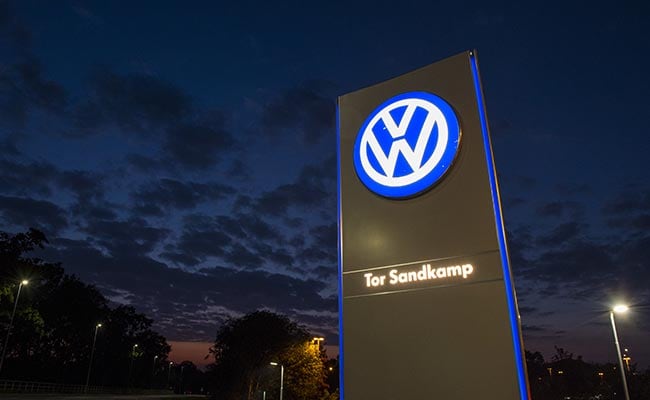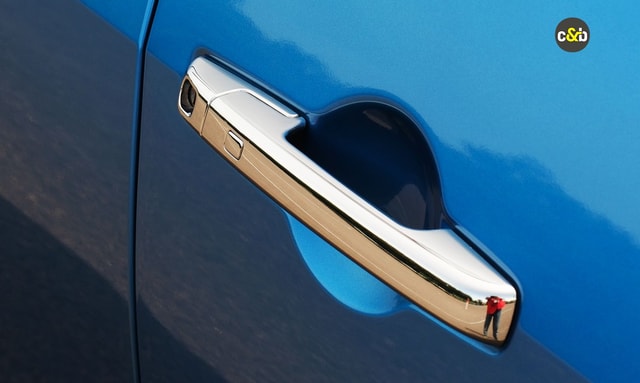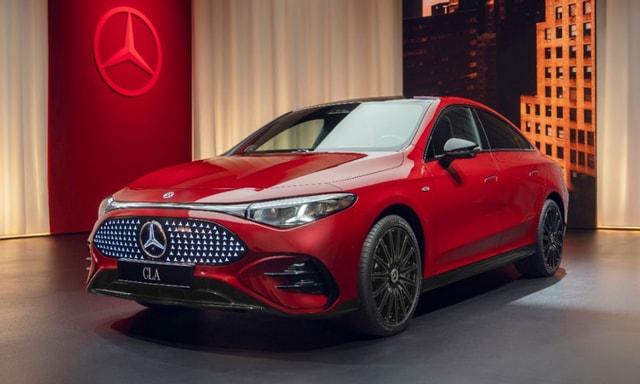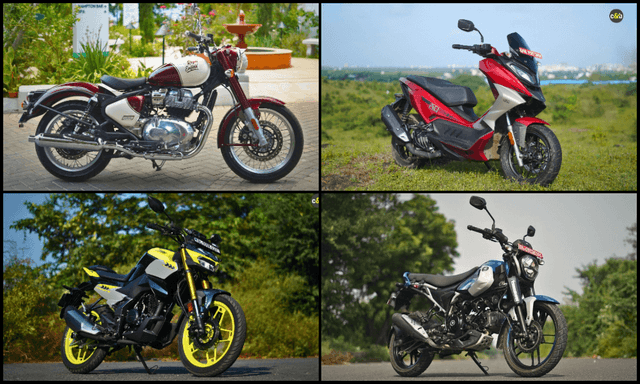Volkswagen Accelerates Transformation Into Software-driven Mobility Provider

Volkswagen is accelerating its transformation into a software-driven mobility provider. By rolling out the ‘Accelerate' strategy, the company will systematically prepare for the profound changes in the automotive industry in good time. Just as Volkswagen resolutely led the way with its global electric offensive, now it is also accelerating the other big issues of the future: integration of software into the vehicle and the digital customer experience will become crucial core competencies. In implementing data-based business models, the company is seeking to attract new groups of customers and tap additional sources of income. Volkswagen also will make autonomous driving available to many people before the end of the decade.
Also Read: Volkswagen Previews EV Sedan Project Trinity

Volkswagen also will make autonomous driving available to many people before the end of the decade.
With ‘Accelerate' Volkswagen now aims to transform itself into “the most attractive brand for sustainable mobility. The company is pursuing three strategic value drivers for the accelerated transformation – brand value, scalable platforms and valuable enterprise, each of which is underpinned by specific measures and ambitious goals.
The company's high volumes will ensure the necessary scaling of the software in the Group. Integration of software into the vehicle and the digital customer experience will thus become core competencies of Volkswagen. To this end, Volkswagen is spearheading the development of the customer-centric digital ecosystem, with the ID. Family blazing the trail. For this, Volkswagen has established the ID. Digital agile project unit that will provide “over-the-air” updates every 12 weeks starting in summer 2021. These will enable the vehicle to remain up to date throughout its life cycle and become better and better with new functions. A fully networked fleet of over 500,000 vehicles is expected to be on the road in just two years' time, through which Volkswagen will be able to transmit direct customer feedback to new functions.
By turning the vehicle into a software-based product, Volkswagen is setting the scene for new, data-based business models aimed at lowering entry barriers to individual mobility while offering very attractive service packages for the customers. Volkswagen thus aims to generate additional revenue over the service life of the vehicle through charging and energy services, through software-based functions that customers can reserve as needed, or through automated driving.
The company will also make the structure of the vehicle portfolio much less complex. Future vehicle generations will be produced with a much small number of versions. The individual configuration will no longer be set through the hardware when the vehicle is purchased. The vehicle will have virtually everything on board and customers can add desired functions on demand at any time using the digital ecosystem in the vehicle. This will significantly reduce production complexity.
Volkswagen has earmarked around 16 billion euros for investment in the future trends of e-mobility, hybridization and digitalization up to 2025. To be able to finance the sizable future investments, the company will systematically work on increasing its efficiency with ‘Accelerate'. The targeted operating margin of at least 6 per cent is expected to be achieved by 2023 and also secured long term.

The company will also make the structure of the vehicle portfolio much less complex.
Also Read: Volkswagen Images ID.3 e-Convertible In Sketches
The focus here will be on becoming more resilient to fluctuations in the market. To achieve this, Volkswagen is seeking to trim its fixed costs by 5 per cent before 2023, increase factory productivity by 5 per cent per year, optimize material costs by 7 per cent and bring all regions into the black in the long term. In South America and the United States, Volkswagen is striving to break even in the current fiscal year. The company can now post a profit in North America with a decrease in sales volumes of around 15 per cent and in South America with sales volumes down by as much as 30 per cent.
Volkswagen plans to rapidly accelerate the global e-campaign once again: by 2030, the brand will increase the share of its all-electric deliveries in Europe to over 70 per cent – double the previous planning target of 35 per cent. In the United States and China, the brand is targeting an EV share of over 50 per cent in the same period. To achieve this, Volkswagen will bring out at least one new BEV model every year. The all-wheel-drive ID.4 GTX will kick things off in the first half of 2021, followed by the sporty ID.5 in the second half of the year. The ID.6 X / CROZZ, a seven-seater electric SUV for the Chinese market, will be launched in autumn. Plans for an electric car under the ID.3 are pushed up by two years to 2025.
Latest News
 car&bike Team | Feb 4, 2026Suzuki Access ABS Launched At Rs. 92,328The Suzuki Access ABS is now the most-affordable two-wheeler with single-channel ABS on sale in India.2 mins read
car&bike Team | Feb 4, 2026Suzuki Access ABS Launched At Rs. 92,328The Suzuki Access ABS is now the most-affordable two-wheeler with single-channel ABS on sale in India.2 mins read car&bike Team | Feb 4, 2026Nissan Gravite MPV India Debut On February 17Set to be underpinned by Renault-Nissan’s CMF-A platform, the Gravite will share its underpinnings with the Renault Triber.1 min read
car&bike Team | Feb 4, 2026Nissan Gravite MPV India Debut On February 17Set to be underpinned by Renault-Nissan’s CMF-A platform, the Gravite will share its underpinnings with the Renault Triber.1 min read car&bike Team | Feb 3, 2026China Mandates Fitting of Mechanical Door Handles On New Cars From 2027Vehicles already on sale to be given an additional 2 years to conform to the new norms.2 mins read
car&bike Team | Feb 3, 2026China Mandates Fitting of Mechanical Door Handles On New Cars From 2027Vehicles already on sale to be given an additional 2 years to conform to the new norms.2 mins read car&bike Team | Feb 3, 2026Mercedes-Benz CLA EV India Debut In April 2026The new-gen CLA, in its all-electric avatar, was globally unveiled in March 2025.1 min read
car&bike Team | Feb 3, 2026Mercedes-Benz CLA EV India Debut In April 2026The new-gen CLA, in its all-electric avatar, was globally unveiled in March 2025.1 min read car&bike Team | Feb 3, 2026Two-Wheeler Sales January 2026: Hero MotoCorp, TVS, Royal Enfield, Suzuki Report Sustained GrowthMost brands have reported year-on-year growth in the first month of CY26.4 mins read
car&bike Team | Feb 3, 2026Two-Wheeler Sales January 2026: Hero MotoCorp, TVS, Royal Enfield, Suzuki Report Sustained GrowthMost brands have reported year-on-year growth in the first month of CY26.4 mins read car&bike Team | Feb 2, 2026Car Sales January 2026: Six Marutis in Top 10, But Tata Nexon Takes Top SpotTata Motors sold 23,365 units of the Nexon, creating a clear gap to the Maruti Suzuki Dzire, which finished second with 19,629 units.1 min read
car&bike Team | Feb 2, 2026Car Sales January 2026: Six Marutis in Top 10, But Tata Nexon Takes Top SpotTata Motors sold 23,365 units of the Nexon, creating a clear gap to the Maruti Suzuki Dzire, which finished second with 19,629 units.1 min read
 Bilal Firfiray | Feb 4, 2026Volkswagen Tayron R-Line Review: Sensible Flagship For IndiaVolkswagen has introduced a made-in-India flagship SUV that offers space, comfort, performance, and German driving finesse in a practical three-row package. But is the Tayron R-Line good enough?6 mins read
Bilal Firfiray | Feb 4, 2026Volkswagen Tayron R-Line Review: Sensible Flagship For IndiaVolkswagen has introduced a made-in-India flagship SUV that offers space, comfort, performance, and German driving finesse in a practical three-row package. But is the Tayron R-Line good enough?6 mins read Preetam Bora | Feb 2, 2026TVS NTorq 150 Road Test Review: Bigger, Better & More Efficient!We test the new TVS NTorq 150 out in the real world to get a sense of what it offers in terms of performance, dynamics and fuel economy.7 mins read
Preetam Bora | Feb 2, 2026TVS NTorq 150 Road Test Review: Bigger, Better & More Efficient!We test the new TVS NTorq 150 out in the real world to get a sense of what it offers in terms of performance, dynamics and fuel economy.7 mins read Bilal Firfiray | Jan 21, 2026Tata Punch Facelift Review: New Turbo Engine; Same Old SoulWith the update, the Tata Punch facelift retains its character of being a healthy runabout, which is perfect for Indian roads. But have these changes made it any better?7 mins read
Bilal Firfiray | Jan 21, 2026Tata Punch Facelift Review: New Turbo Engine; Same Old SoulWith the update, the Tata Punch facelift retains its character of being a healthy runabout, which is perfect for Indian roads. But have these changes made it any better?7 mins read Amaan Ahmed | Jan 17, 2026Bajaj Chetak C25 First Ride Review: Basic, Likeable E-Scooter For First-Time RidersThe Chetak C25, in quite a few ways, is poles apart from the larger and more powerful 30 and 35 Series models, but in its mannerisms, it is very much a Chetak.8 mins read
Amaan Ahmed | Jan 17, 2026Bajaj Chetak C25 First Ride Review: Basic, Likeable E-Scooter For First-Time RidersThe Chetak C25, in quite a few ways, is poles apart from the larger and more powerful 30 and 35 Series models, but in its mannerisms, it is very much a Chetak.8 mins read Bilal Firfiray | Jan 9, 2026Toyota Urban Cruiser Hyryder: 10,000 km Long-Term ReviewAfter spending over three months and 10,000 km with the Toyota Urban Cruiser Hyryder Hybrid, we were impressed by its real-world mileage, seamless hybrid, practical comfort, and Toyota reliability. Is it the best C-SUV then?5 mins read
Bilal Firfiray | Jan 9, 2026Toyota Urban Cruiser Hyryder: 10,000 km Long-Term ReviewAfter spending over three months and 10,000 km with the Toyota Urban Cruiser Hyryder Hybrid, we were impressed by its real-world mileage, seamless hybrid, practical comfort, and Toyota reliability. Is it the best C-SUV then?5 mins read































































































































